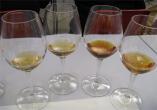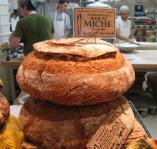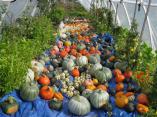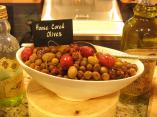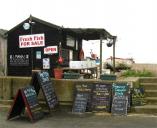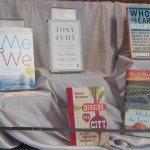 Last weekend I happened upon this rather lovely book display in the window of the Laughing Oyster book store in Courtenay. I’m keeping good company!
Last weekend I happened upon this rather lovely book display in the window of the Laughing Oyster book store in Courtenay. I’m keeping good company!
This afternoon I go head-to-head with the Superbowl, whatever that might be, giving a book talk at 4pm at the beautiful Village Books in Fairhaven, Bellingham. I took the marvelously efficient and comfortable Amtrak train from Vancouver, which gave me a little time to wrap my head around a new laptop, purchased reluctantly after my previous faithful companion died a lingering death of old age (obsolete after 5 whole years: why is this legal??).
The trip also gave me time to reflect on last night’s thoughtful and inspiring talk by 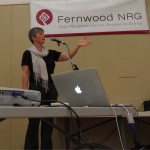 Seattle’s food forest designer, Jenny Pell. She spoke about community-driven food security initiatives in Washington and Oregon, including the Beacon Hill Food Forest in Seattle, a 7-acre parcel that is being developed as the largest public food forest in all of North America. It’s had lots of media coverage.
Seattle’s food forest designer, Jenny Pell. She spoke about community-driven food security initiatives in Washington and Oregon, including the Beacon Hill Food Forest in Seattle, a 7-acre parcel that is being developed as the largest public food forest in all of North America. It’s had lots of media coverage.
Pell, like many permaculturalists I’ve met, was a broad thinker who has passed the stage of thinking about change: the time for change is already here, and she wants to see movement into a more sustainable and positive way of life. Why, she asked, do we behave like zoo visitors, simply marveling over model achievements (like the Bullock Brothers’ permaculture homestead, or the solitary Sea Street in Seattle) and never creating multiples of them? We know what’s coming and that change is needed, but somehow we keep our heads down and live on as if we had nothing to do with making a sustainable world possible.
She admitted she was unusual, having never had a credit card nor made a mortgage payment, so was free of the economic traps that have wrapped so many in knots. Do what you need to do, was her message, and you too can live in a world where a salad costs less than a heavily subsidized hamburger, or you don’t have to call in the media in order to be allowed to keep your front yard food garden; where municipal planners can encourage home owners and builders to incorporate features like greywater harvesting and composting toilets; and where it’s not illegal to sell produce grown in your own garden.
